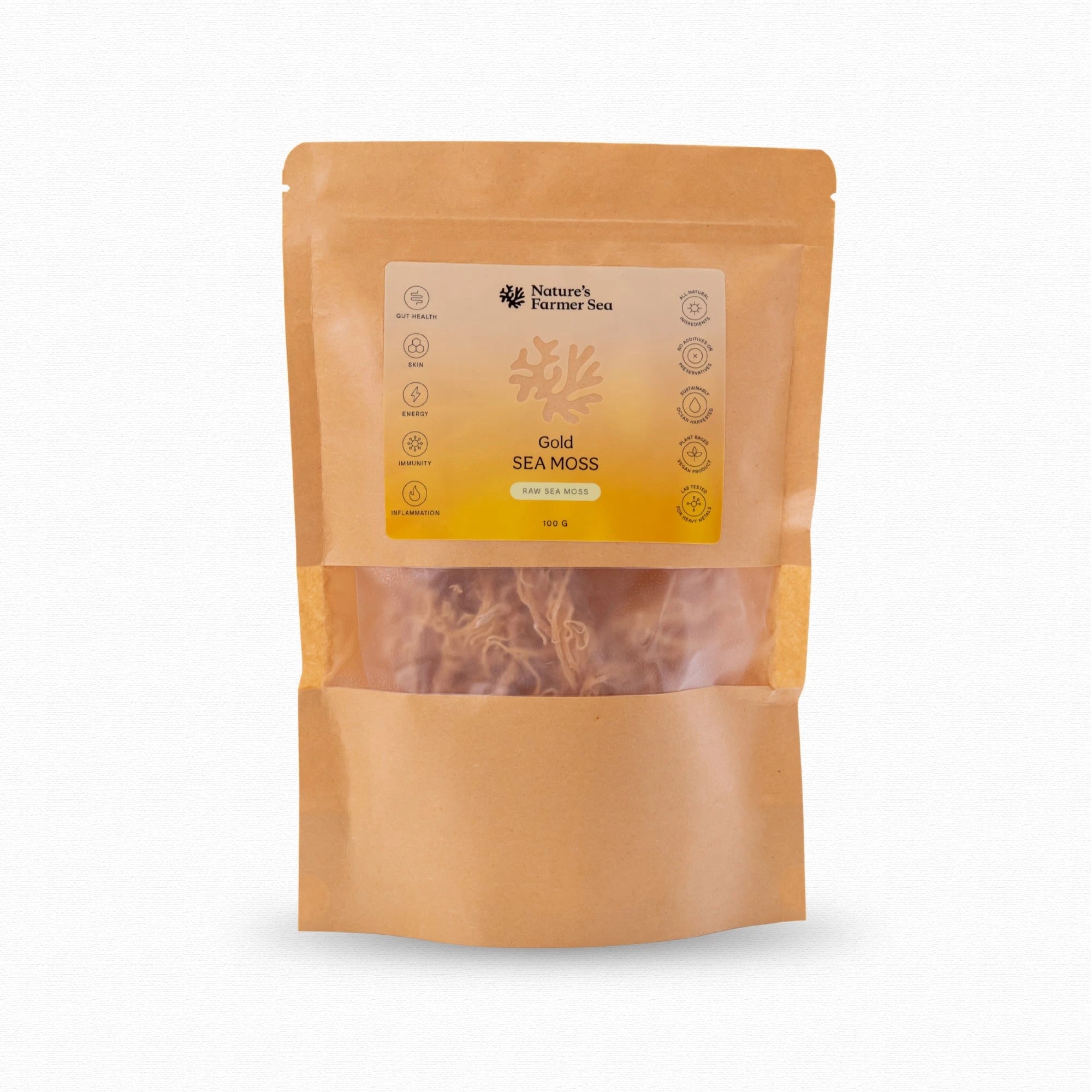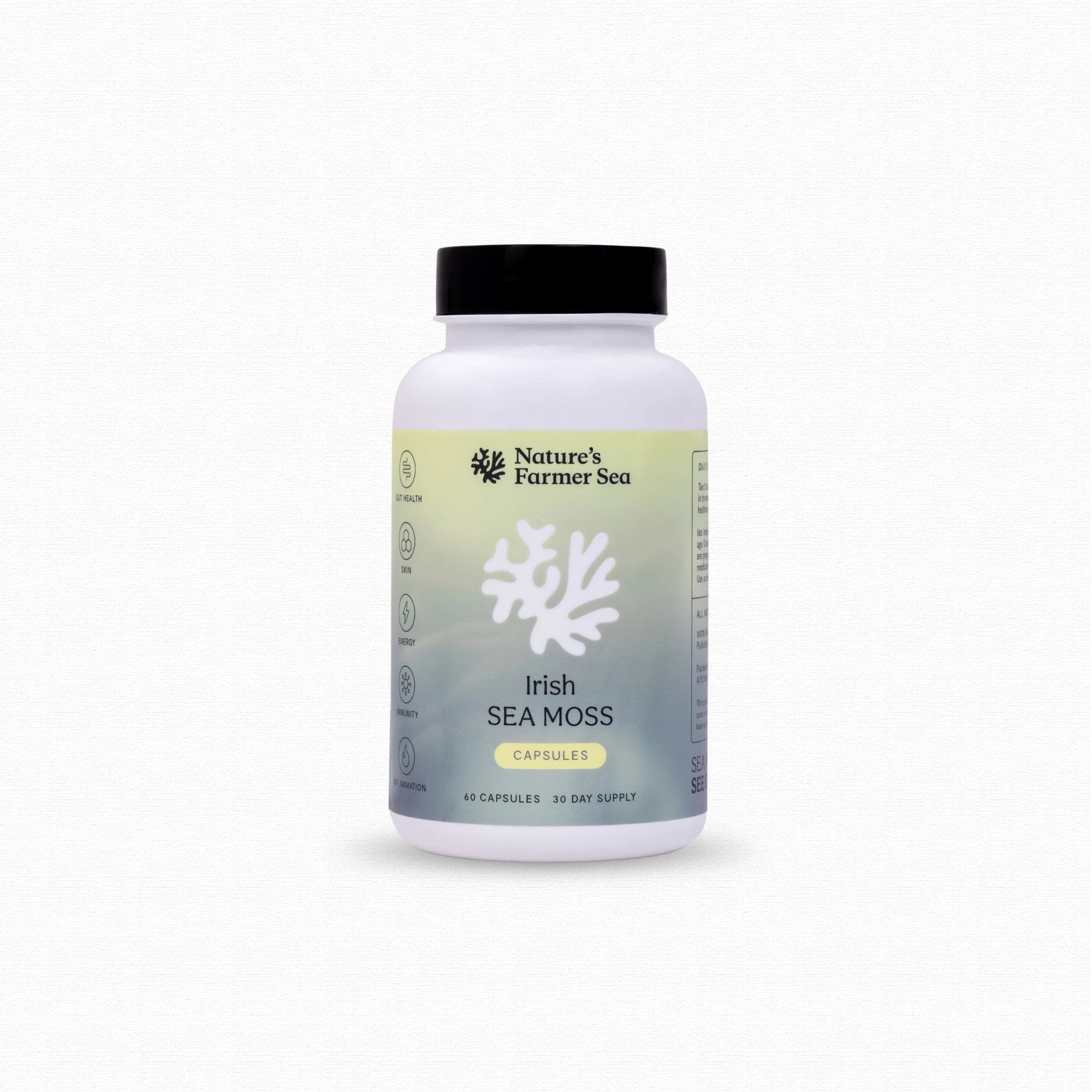Written By Gené Schesser
Sea Moss and a Natural Approach to Hormonal Balance: A Women’s Health Perspective
Nature’s Farmer Sea nutrient-rich sea moss gel supports thyroid function, nurtures the gut microbiome, and combats inflammation thanks to its many phytonutrients, vitamins, and minerals. Incorporating sea moss into your daily wellness regimen offers holistic advantages for optimal hormonal balance and overall well-being.
Iodine Powerhouse
Iodine plays a crucial role in thyroid function and hormonal regulation. It's essential for thyroid hormones T4 and T3, which regulate protein synthesis and metabolism. For female reproductive health, iodine is necessary for ovulation, progesterone production, and estrogen metabolism. Sea moss, offering up to 45mg of iodine per serving, is an excellent source to support overall health and hormonal balance.
Full of Fibre
Sea moss is rich in indigestible fibre, which nourishes the gut microbiome. This fosters a diverse and thriving community of beneficial bacteria, supporting hormone metabolism and regulation. The fibre in sea moss promotes the production of short-chain fatty acids (SCFAs) like butyrate, which regulate hormone levels via the gut-brain axis. This interaction can help manage estrogen levels, crucial for menstrual cycle regulation and reproductive function.
An Antioxidant Boost
Sea moss boasts antioxidants like vitamins C, A, and E, which combat oxidative stress and inflammation. By neutralising harmful free radicals, sea moss helps protect cells and tissues, reducing inflammation. This is particularly beneficial for hormonal health, as chronic inflammation is often linked to hormonal imbalances and conditions like PCOS and endometriosis. Lowering inflammation supports a more balanced hormonal environment, potentially alleviating symptoms and improving overall menstrual health.
Conclusion
Nature's Farmer Sea Moss is a multifaceted ally in promoting hormonal balance and overall well-being. Its iodine-rich content supports thyroid function, fibre nourishes the gut microbiome, and antioxidants combat inflammation, offering a holistic approach to enhancing hormonal health naturally.
Braun, L., & Cohen, M. (2015). Herbs & natural supplements : an evidence-based guide. volume 2. Churchill Livingstone/Elsevier. Eleanor Noss Whitney. (2022). Understanding nutrition (5th ed.). Cengage. Micronutrients, I. of M. (US) P. on. (2001). Iodine. Www.ncbi.nlm.nih.gov; National Academies Press (US). https://www.ncbi.nlm.nih.gov/books/NBK222323/#:~:text=Iodine%20is%20an%20essential%20component Qi, X., Yun, C., Pang, Y., & Qiao, J. (2021). The impact of the gut microbiota on the reproductive and metabolic endocrine system. Gut Microbes, 13(1), 1894070. https://doi.org/10.1080/19490976.2021.1894070 Why is Iodine Important for Women’s Health? (n.d.). Indigo Herbs. Retrieved February 15, 2024, from https://www.indigo-herbs.co.uk/blog/why-is-iodine-important-for-women-s-health




